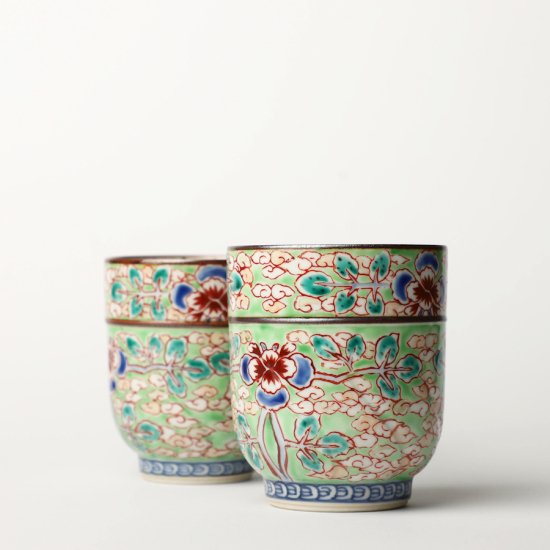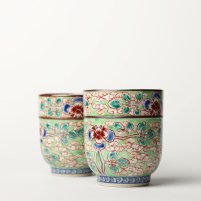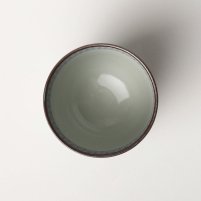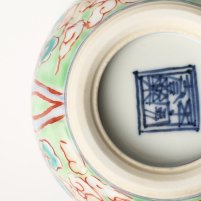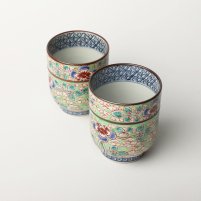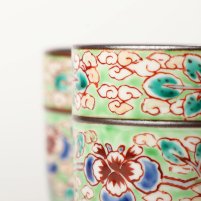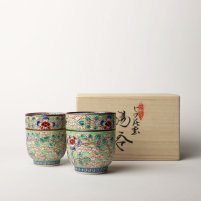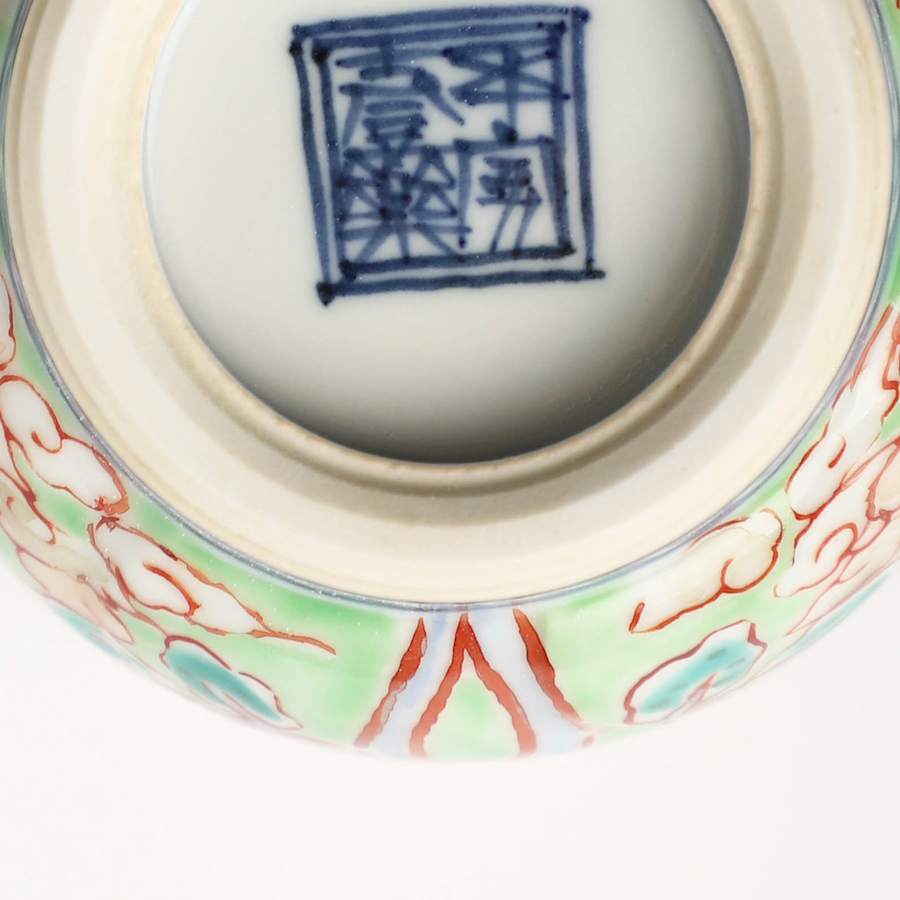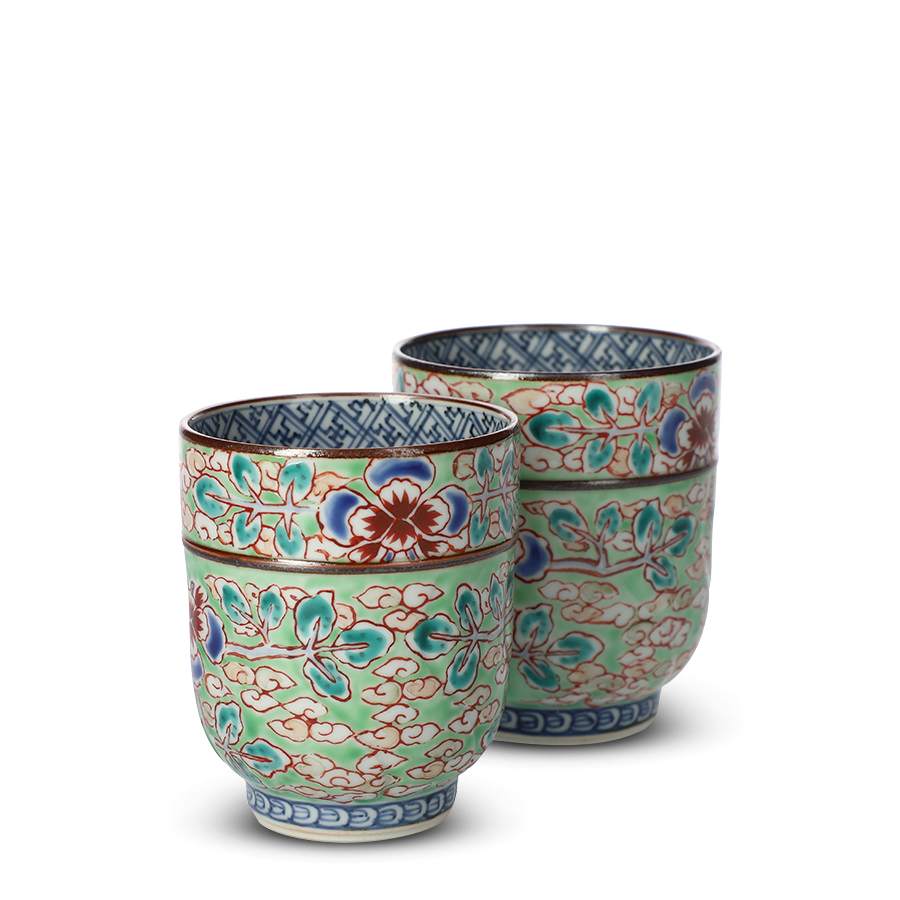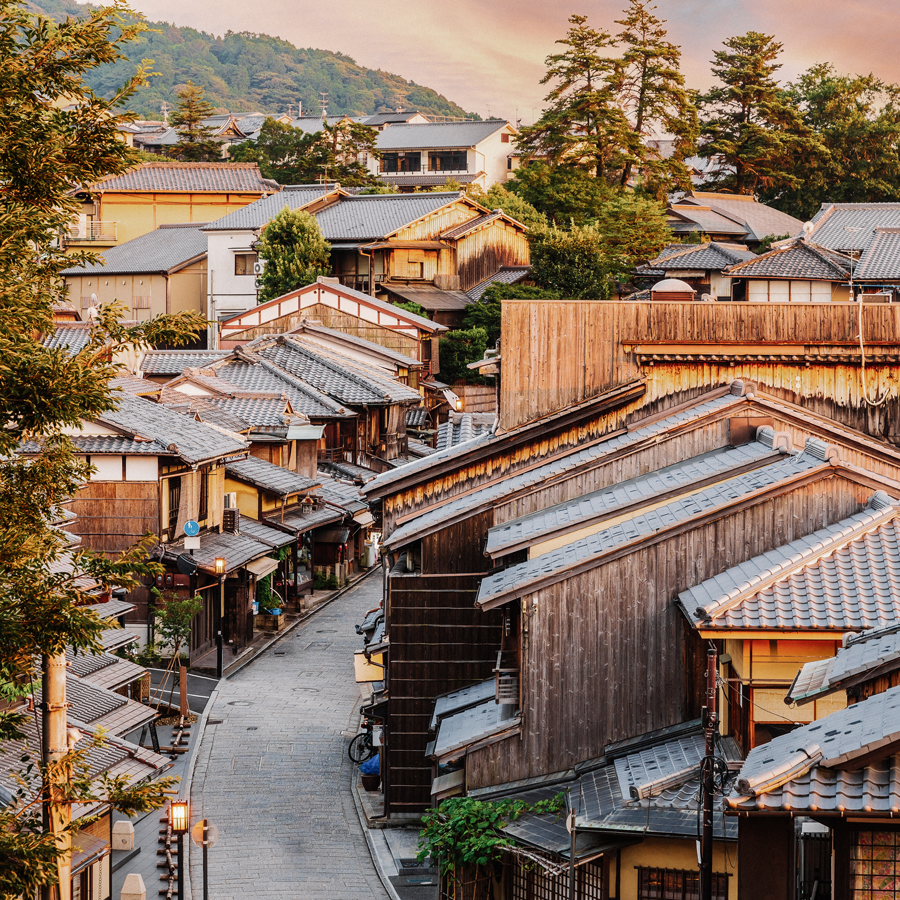Hand wash with warm water and a soft cloth or sponge – avoiding excessive rubbing. Use a mild washing-up liquid as necessary. After draining, pat dry with a towel or leave to dry naturally. Do not put in dishwasher, dryer or microwave as this may damage the glaze.
Teacup Pair
Hiwa Kaun
Ichiraku
SKU
1589
Yoshi En has recently grown out of Sunday Natural to become an independent premium tea store. As part of this transition, some products may still be shipped in Sunday Natural packaging.
A beautiful pair of his and hers Yunomi teacups adorned with arabesques of peonies and tendrils (Kaun 花雲) against a muted green-yellow (Hiwa 鶸) background. Handmade at the Ichiraku Kiln in Kyoto, renowned for their exemplary Kiyomizu-yaki ceramics. Comes protected in a traditional Japanese wooden box, perfect as a wedding gift.
| Product | Teacup pair set, green |
| Ceramic Style | Kyo-/Kiyomizu-yaki |
| Origin | Kyoto, Japan |
| Studio | Ichiraku-gama 壹楽窯 |
| Volume | 175ml, 230ml |
| Dimensions | Ø7.1 x 8.5cm, Ø7.3 x 9.2cm |
| Weight | 150g, 160g |
| Material | Porcelain |
| Decoration | Handpainted floral arabesque |
| Artist's mark | Signature on base |
| Packaging | Wooden box (Kiribako) |
Each piece is handmade and unique, therefore sizing and finish may vary slightly
In stock



